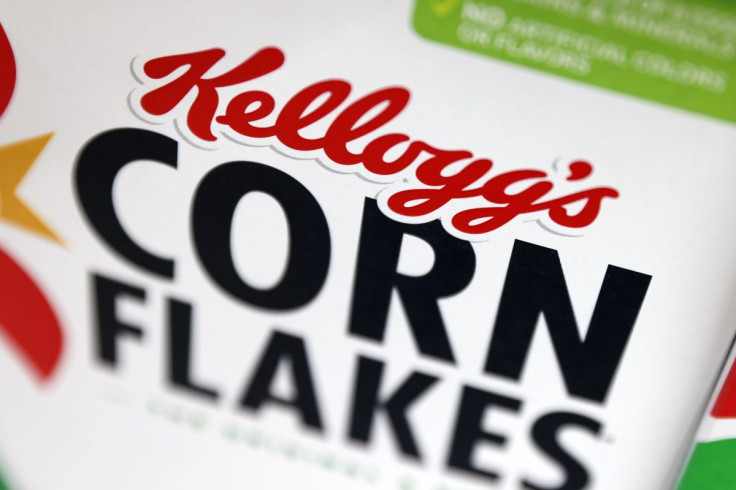Kellogg To Focus On Snacks With Surprise Three-way Split

Kellogg said on Tuesday it would split into three independent companies, in the latest U.S. corporate overhaul aimed at simplifying its structure and sharpening its focus on the snack business.
Shares of the company, which began life in 1894 when W.K Kellogg created Corn Flakes and became known around the world for its breakfast cereals, were up 4%.
The breakup of the Pringles and Pop-Tarts maker would result in the creation of a global snacking business that would also house its international cereal and noodles brands and its North America frozen breakfast division.
The business brought in net sales of $11.4 billion in 2021, accounting for 80% of its total revenue.
Chief Executive Steve Cahillane told Reuters the decision to split the business was made to make them very focused, strategic categories.
"(Cereals) will not have to compete for resources against a high-growth snacking business. Frosted Flakes does not have to compete with Pringles for resources," Cahillane said on a call with analysts.
Kellogg said it would spin off into separate companies its North America cereal unit and the plant-based business, for which it is also exploring options, including a sale.
The company has in recent years focused on its global snacking portfolio, as sales of U.S. cereals have declined with more Americans taking to snacking and relying on fast-food chains for breakfast.
Most packaged-food companies, even those without a huge presence previously in the segment such as Hershey Co and Mondelez International Inc, are doubling down on the business through billion-dollar acquisitions.
After the split, the snacking division will have brands such as Pop-Tarts, Kellogg's Rice Krispies Treats and frozen breakfast products such as Eggo waffles. It will be the biggest of the three and would be led by current top boss Cahillane.
The cereal business would include Kellogg's, Frosted Flakes and Froot Loops, while the plant-based focused firm would be anchored by its MorningStar Farms brand.
SUM OF PARTS
The decision by Kellogg to split follows similar announcements by global conglomerates such as Johnson & Johnson and General Electric Co in the past year and underscores how big companies need to be nimble in their fight for market share.
Companies often split in an attempt to shed a so-called conglomerate discount, where the valuation is lower than the "sum of the parts" if the component businesses are run separately.
"It is splitting now to take advantage of growth opportunities as economies slow and new growth is hard to find in all aspects of the business," said Randy Allen, senior lecturer at Cornell College of Business.
"Their snack business is more globally focused and has more growth potential."
The company said its North American cereal business and the plant-based focused company will remain headquartered in Battle Creek, Michigan. While the snacking-focused company will maintain dual campuses in Battle Creek and Chicago, Illinois.
© Copyright Thomson Reuters 2024. All rights reserved.







